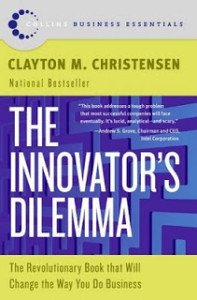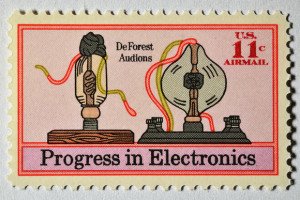Good Books (Part 2)
About fifteen years ago I was chatting with Michael Porter author of the classic —Competitive Strategy at a field hockey game where our daughters were playing. I could not resist asking him if he had read Clay Christensen’s The Innovator’s Dilemma, and if so, what he thought about it. He said (with a big grin), besides his own books most business books were not worth the paper they were printed on. He went on however to praise Christensen’s work.
 The Innovator’s Dilemma is about how unexpected technologies come along and beat the daylights out of existing business. Often these technologies appear crude, imperfect and unlikely to be transformative. Technologies that are barely “good enough”. Examples might be the cell phone or the personal computer. No one recognized the impact of these inventions. No one saw them coming — ask AT&T, Data General and DEC.
The Innovator’s Dilemma is about how unexpected technologies come along and beat the daylights out of existing business. Often these technologies appear crude, imperfect and unlikely to be transformative. Technologies that are barely “good enough”. Examples might be the cell phone or the personal computer. No one recognized the impact of these inventions. No one saw them coming — ask AT&T, Data General and DEC.
Highly recommended addition to your reading list, but keep in mind that it is a bit dated. It is the beginning of the stream of thought which is now represented by Anti-Fragile.
Porter’s Competitive Strategy is also recommended — but it is focused on business strategy.

